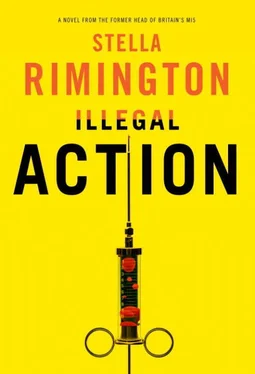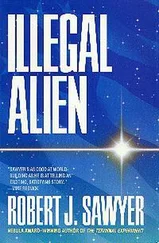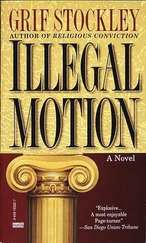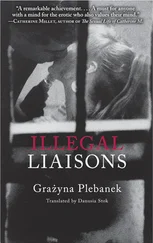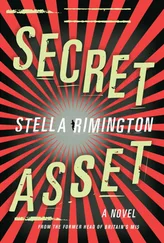Rodrigues blew through his teeth and looked at his partner again, this time with alarm. “No one said anything to us about Russians.”
“It’ll be fine,” said Maloney to his younger partner, but when the older man turned towards Michael his face was sombre. “What exactly do you want us to do? Is the priority getting your colleague out of there, or dealing with these other people?” he asked.
“Getting my colleague,” he said, remembering Brian Ackers’ orders. But Michael, just fending off panic now, realised they might have to do both.
As they changed direction and turned on to another road, the radio crackled. Maloney answered and, listening to the transmissions, Michael realised that this was turning into a major incident and he was at the centre of it.
A pulsating sound overhead, a shadow, and then a helicopter passed over the car, barely 500 feet above the ground, and flew off into the distance. “Is that one of yours?” asked Michael, pointing through the windscreen.
Rodrigues shook his head. “No. But right now I wish it was.”
In the drawing room the air crackled with tension. Greta stood in front of the fireplace now, very much in charge. Liz saw that someone, presumably Dimitri, had carried in the Blue Mountain canvas on its easel and stood it up in a corner where the light from the windows fell obliquely on it. Brunovsky had brought Jerry Simmons in from the front of the house and now they were standing beside the picture like some kind of uneasy reception committee. The whole scene resembled a stage prepared for “curtain up.” Only the main character had not yet arrived.
Like Brunovsky, Dimitri was avoiding meeting Liz’s eyes. She realised that he might genuinely be a gallery curator but he was no bystander here. From the assured way he was acting, he was obviously fully part of whatever was going on. That explained the small mysteries she’d found in the man: his excellent English (despite supposedly having been to the West only once before), his expensive lifestyle—the chic hotel, the expensive dinner. And, she remembered with a shiver, the sudden phone call that had sent her off home early to the waiting mugger.
Liz glanced at Simmons. How much did he understand about what was happening? He had been outside with the car while Greta was pointing her gun at Liz. She didn’t know whether he was armed. Probably not. How would he act if events took an ugly turn or if she was threatened? His job was to look after Brunovsky. He’d interfere only if his principal was threatened—or in his own defence, and he was no quick thinker.
Her reflections ended abruptly when the French windows to the garden burst open and a tall, lean figure came into the room. Liz recognised the taut, scarred face of Grigor Morozov. Of course, this was the last piece of the jigsaw. The final act had begun.
Morozov wore a dark grey business suit and an open-necked shirt. Turning to face the room, he looked round, puzzled, his eyes moving from one figure to another, as he tried to understand the scene he had walked into. Then he saw Brunovsky standing by the sofa. “What are you doing here?” he said. “Where is the owner? Who are all these people?”
“Upstairs,” said Brunovsky. He waved a hand airily. “But she has no objection to your looking at the picture.”
“Forbes told me I would be alone,” Morozov said tensely. “Have you bribed him too? If you have bought the painting, just say so and I will go back to London. But do not play games—I have had enough of your games, Brunovsky.”
Brunovsky said something in Russian in a sharp, harsh voice. The explosive anger Liz had seen before seemed close to surfacing, but she noticed Greta give him a cautioning look. He contrived a small, phoney smile.
“The picture is there,” he said in English, pointing at the canvas in the corner. “Be my guest. It is a little rich for my blood.” And he chuckled knowingly.
Mystified, Morozov hesitated, then turned and stared at the painting on its easel. He walked closer to examine it, and Liz noticed that Greta still had her hand in her shoulder bag. Dimitri had moved and was standing now between Morozov and the door to the hall.
Morozov inspected the picture for a moment, then uttered a caustic laugh. He turned to face the room and his eyes fastened on Greta and Dimitri.
“For this you have brought me to Ireland?” he said, gesturing at the painting. “For this?” he said again, only this time there was an edge to his voice.
He turned and contemplated the picture calmly. Then suddenly he stepped forward and smashed the back of his hand into the canvas. There was a ripping, tearing sound, and a large piece of canvas flopped like a loose shirttail to the floor.
In the brief ensuing silence, Liz could only think that if Blue Mountain were authentic, it had just lost most of its £20 million value. But of course, Morozov had done nothing more than destroy fifty pounds’ worth of recently bought paint and canvas. Who had painted it? Dimitri quite possibly.
“Why have you brought me to Ireland to show me an obvious fake?” Morozov demanded, turning to glare angrily at Brunovsky. “You thought I was so stupid that I would fall for it?”
“Well, you came!” Brunovsky replied. Some of his self-assurance had returned and his customary grin appeared on his face.
“What is the point of this charade?” asked Morozov angrily, addressing the room in general. “You have taken great trouble and you have spent many thousands of pounds, to do what? Just to fool me? Well, in that you have failed. I am not fooled.”
Greta spoke, her voice calm and steely. “The picture was not the point of the exercise.”
“What is the point then?” he demanded angrily.
“You are the point, Comrade Morozov.”
“I am no comrade of yours, whoever you are. I have a British passport.”
“An officer of the KGB does not cease to be a Russian simply because he leaves the Service. He has his oath, his duty.”
“What do you mean? Who are you?” demanded Morozov, his voice rising. For the first time Liz saw fear in his eyes.
“You know very well what I mean. Predatel! ” She spat out the word.
“I am not a traitor,” Morozov protested.
“What—are you saying now that you are a German? No true Russian would work for German masters as you did, Grigor Morozov. That is treason. Article 64 of the Soviet Code prescribes the death penalty for such a crime.”
Morozov swallowed, seemingly struggling to keep his nerve. “I had no choice. The Germans paid for my son’s treatment. Do you know what that costs? How much it meant to me, who was paid as the Soviet state paid its servants?”
Finding no sympathy in Greta’s eyes, he changed tack and addressed the room as though it were a business meeting. “There is now no such thing as the Soviet Union. It is history. You have no right to pursue a private citizen. I have a British passport. I am leaving now.”
But he did not move. Greta also remained motionless. She said, “What you have done will not go away, Morozov. Treachery is not a crime which expires within seven years, like some others.”
Morozov paled suddenly. He asked, “What are you going to do? Kill me?”
“No,” Greta said, her voice calm and chilling. “We shall not kill you. We shall put you before a Russian judge. You will have your day in court, as your British friends say. But you know the sentence. The story of your treason will be known to all.”
“You are taking me to Moscow?” asked Morozov with disbelief. “How are you going to get me there? You expect me to smile and bow at passport control?”
“No,” said Greta. She gestured with her hand and Dimitri moved forward, producing out of nowhere two sets of plastic handcuffs.
Читать дальше
